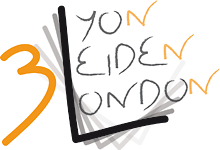The Endangered Languages Academic Programme at SOAS is experimenting this year with including hands-on in situ fieldwork as part of our MA in Language Documentation and Description.
A group of MA students is currently carrying out two weeks of fieldwork in Guernsey with Dr Julia Sallabank, Research Fellow in Language Support and Revitalisation, who has been doing research on Dgèrnésiais (the locally preferred spelling, more commonly spelled Guernésiais) for many years. The students are documenting contemporary language use and making digital audio and video recordings of narrative and conversations, putting into practice the knowledge and skills they have been acquiring in their MA coursework, especially the half-units Field Methods and Technology and Language Documentation. Dgèrnésiais is the nearest autochthonous endangered language to SOAS and is estimated by Jan Marquis, the Guernsey Language Support Officer, to have around 1,000 speakers (just 2% of the population), with the bulk of them aged over 60. The trip is timed to coincide with the annual Guernsey Eisteddfod which includes poetry and speaking competitions.
 Follow
Follow